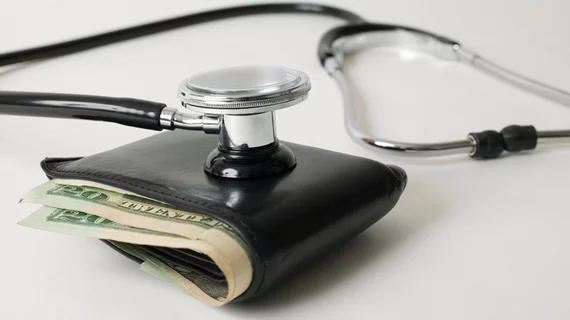Trump administration wants to end surprise billing
President Trump announced principles to address the issue of surprise billing in healthcare, the White House announced Thursday.
The topic of surprise billing has made headlines over the last several years as patients around the country have received sky-high medical bills in the mail weeks after receiving emergency care. As many as 1 in 7 patients receive surprise medical bills, according to an analysis by the Health Care Cost Institute. Policymakers have been under pressure to address the problem, with some states taking it into their own hands to help residents hit with unaffordable bills.
Specifically, the Trump administration outlined four principles that should be considered in any legislation that aims to reduce the burden of surprise billing on Americans:
- Patients should not be forced to shoulder the extra costs billed by a care provider but not covered by their insurer when receiving emergency care
- Patients receiving scheduled care should be informed about whether providers are in or out of their network and what costs they may face
- Patients should not receive surprise bills from out-of-network providers they did not choose
- Federal healthcare expenditures should not increase
Potential fixes to surprise billing could help address the burdens placed on Americans from costly bills. Patients often receive surprise, costly medical bills after receiving emergency care, in which one or more providers involved in the care was out of network. Patients are typically not informed providers are out of network or may be incapable of deciding for themselves how and where to receive care in the case of an emergency.
"The Administration wants to ensure patients are not price gouged in emergency situations by out-of-network providers they could not choose," the announcement reads.
The announcement comes a day after CMS finalized a rule that requires drugmakers to publish the list prices of prescription medications in TV ads.
“You, as the American patient, have the right to know what a prescription drug or healthcare service costs before you receive it,” HHS Secretary Alex Azar said in a statement Thursday. “We aim to address surprise billing in a way that will protect American patients from this abusive practice and lay a foundation for a system where the patient is put at ease and in control.”

